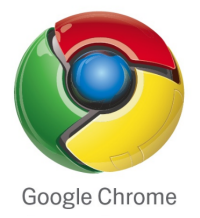Google Chrome: Steal this browser


[ Read: Google bets future on improving Client, Connectivity, and Cloud ]
First of all, Chrome is a new browser but not a new rendering engine. What's the difference? A rendering engine just draws words and graphics to a rectangle on the screen. A web browser is all the stuff around that rectangle including menus, tabs, favorites, searching, and so forth. Rendering engines are hard, quirky, and tedious, so for Chrome Google picked the WebKit engine used by Safari, Adobe AIR, iPhone, and Android instead of writing their own. Web developers will be relieved to know that they don't have to worry about yet another engine to target.
So what is Chrome and why should you care? Chrome puts together a number of new and old ideas for browser usability, stability, and performance under one open source roof. By giving away the code, Google is practically begging other browser makers (including the top two--Microsoft and Mozilla) to take pieces from their browser and incorporate them into their own wares.
As the cute comic book introduction to Chrome says, Google's goal is to "Keep moving the web forward". Like Gears, I expect Chrome to be a platform for experimentation. I don't expect it to gain any significant market share on its own. That's not its goal. However I do hope that others will take Google up on the offer to use some of the ideas it demonstrates.
There are two advances in particular that make Chrome interesting:
- Multi-process browsing. Most browsers up to now have run as one process containing multiple threads, but Chrome is a bunch of cooperating processes. Think of threads as people and processes as houses the people can live in. If you put a bunch of people in one house, and one of them gets sick then everybody else in the house might catch it too. But if everybody gets their own house, that's much less likely to happen. One thing operating systems are really good at is keeping processes separated. So the hope is that tabs and windows in Chrome will be unable to affect each other negatively.
- First class tabs. Unlike Firefox or IE7, Chrome puts the tabs on top of the browser window above the address bar that shows the page URL. In fact some apps may not need an address bar. Tim Burners Lee always envisioned the URL as something that would be hidden from the user, so I think we'll see more of that. As part of this behavior, you'll be able to drag a tab out of one window and into another. I've been looking forward to that feature for a long time, as I tend to open up so many tabs I can't read their titles any more.
Unless you're a web developer or like living on the bleeding edge, I don't recommend you rush out and download Chrome yourself. The initial version will have plenty of rough edges that will send you running back to your old standbys. But if you want a glimpse of what webtops might look like in a few years, check out Google's Chrome-plated vision.